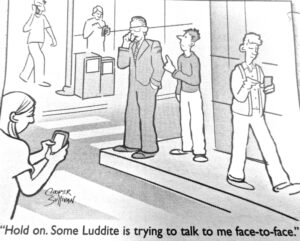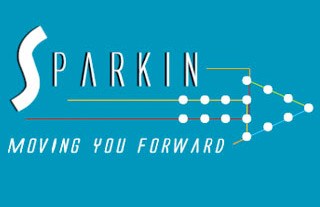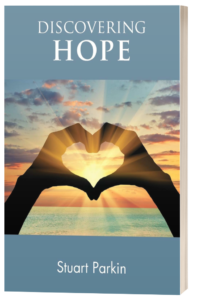Adaptability the Key to Success 2018 and Beyond?
A 2017 report by talent experts Right Management highlighted 91% of HR managers thought that by 2018 individuals would be recruited for their ability to change/adapt. Meanwhile, 53% of employees believed that adaptability would be a key driver for success. Some discrepancy.
______________________________________________________________________________________________________________________________________________________________________
‘It is not the strongest or the most intelligent who will survive, but those who can best manage change.’ (Darwin)

______________________________________________________________________________________________________________________________________________________________________
- Do employees truly underestimate the importance of adaptability or, do they believe other factors (such as intellect and emotional intelligence are more important?)
- The trend for full time roles continues to point to ever shorter tenure in advertising/marketing. The average employ of a CMO whilst up to 44 months in 2017, bucked a ten-year decline prior to last year (Market Technology Insights 3/28/18)
What might exacerbate this further?
i) Corporate needs – Budget pressures point to constant change and push toward flexible work contracts.
ii) Employee preferences – Flexi-work hours/job variety, which many want, provide flexibility, but the but also create much greater complexity/juggling of tasks.
iii) Rapid Technological innovation will continue – Moore’s Law refers to the doubling every two years of the volume/capacity of computer chips, which will make everything move even faster, further challenging business and employees to adapt.
What do you think?
Adaptability = Career Success?
A 2017 survey suggests that, all other factors remaining constant, hiring will place a much greatter emphasis on your adaptive ability as a means of determing whether you get hired. The report by talent experts Right Management, highlighted that by 2018, 91% of HR managers thought that one of the primary considerations in hiring individuals would be based on their ability to change. Meanwhile, 53% of employees believed that their ability to deal with change, or their adaptability, would be key for for future success. What might explain this discrepancy?
‘It is not the strongest or the most intellient who will survive but those who can best manage change.’ Charles Darwin
Alessandra and O’Connor in their book ‘The Platinum Rule,’ suggest that adaptability consists of two aspects, ‘flexibility’ or our willingness to change and ‘versatility,’ our ability to change. Perhaps the latter points more to experience and intelligence?
Flexibility, refers more to your willingness to pivot or, to focus your energy/ability to embrace rather than resist change. It is this ‘ability’ of acceptance, the degree to which you are more a ‘cup half full’/optimistic type, which may well explain who actually adapts best. If this is true then expect to be tested for your optimism quotient or ‘OC’, at a job interview in the near future.
What do you think?
Articles and commentary that might be of interest…
- Adaptability is
- Is it possible to hire for adaptability?
- Why learning adaptability will matter in the future workplace
- Adaptability – The new competitive advantage
- Success – The biggest benefit to being adaptable
- 14 Signs of an adaptable person
- Adaptability and Flexibility
- The Seven Skilsets Employers Want
Increasingly It Is Your Adaptability That Will Determine Your Success
Neophilia or ‘to like anything new’, might be something we can all relate to dependent on the context. New places to visit, new foods to eat, all good when they expand who we are, sometimes literally!
But what about new things or circumstances when there is much more at stake, such as new management or new systems at work which may impact our job security? Perhaps a Luddite after all?
What’s typical, most of us don’t like uncertainty, when the stakes are high, when we have much to lose.
Should we even care about how adaptable we are unless we are explicitly assessed for it when seeking employment?
A 2017 report by talent experts Right Management highlighted that 91% of HR managers thought that by 2018, individuals would be recruited for their ability to change/adapt. Meanwhile, 53% of employees believed adaptability, would be a key driver for future success. What might explain this discrepancy? And, given the stated direction of HR managers, what are the keys to you and those you care about developing effective adaptive capability?
‘It is not the strongest or the most intelligent who will survive, but those who can best manage change.’ (Darwin)
First we need to understand adaptability or, ‘the nature of changing or creating modification in oneself to suit a new environment.’
Alessandra and O’Connor in their book ‘The Platinum Rule,’ suggest adaptability consists of two aspects, ‘flexibility’ or our willingness to change and ‘versatility,’ or our ability to change. Perhaps the latter points more to experience and intelligence (IQ) and emotional (IQ) that people believe they possess in sufficient quantity.
Flexibility however, refers more to your willingness to pivot or, to focus your energy/ability to embrace rather than resist change. It is this ‘ability’ of acceptance, the degree to which you are more a ‘cup half full’ optimistic type, which may well explain who actually adapts. If this is true then expect people to be talking much more about optimism quotient’s, or ‘OQ.’
From a personal perspective, having clear options moving forward post-change, (internal or external) which whether exercised or not, can enhance our state of mind, can make us feel less trapped by a changing situation and therefore better able to adapt.
Arguably those with foresight, do and continue to plan for change, anticipating what might happen and prepare themselves accordingly, but not everything can be planned for.
And, even if we did anticipate, is planning and recognizing the same as the ability to actually cope and proactively adapt to change, particularly when it is sudden.
What do you think?
For more information on this subject see the newsletter on the subject https://bit.ly/2ExHOGj and past newsletters too. Feel free to sign up for future letters.
2018 Miami Ad School Parkin Award
A fun reason to head down to Miami, to present the 18th Parkin Award of $1500 (plus $500 coaching).
Congratulations Rachel Eden!
The award goes to the most empathetic account planning graduate.
The award is judged by the students on the course as well as the teachers, teaching the course; (Not the school; Nor me)
Of the 18 winners to date, 9 woman, 9 men. Not planned, but in a truly inclusive world, this is how the numbers should be, or thereabouts!
#MiamiAdSchool #ParkinPrizeWinner #Empathy#AccountPlanningBootcamp
#LifeSkills #EmotionalIntelligence#UberTeamPlayer #ParticipantsDecide
#DerekParkinAward #Winner#Passionate #CareerOptimisation #Advertising
#SparkinCoaching #Careers#KnowYourAudience #ActionNotWords
#ConnectWithPeople #BetterLife #UnitedStates #Inspire #SparkinSearch
#CreativeStrategy#AccountPlanning #StrategicRelationships #CoreSkills #Mentoring
#Action
Becoming one of your agency’s ‘most valuable’ employees
Camels walking through the ocean…That doesn’t happen at least until I saw it, I didn’t believe it. Something almost as unusual as the individual on the career express train that never derails; The individual that’s never been on the wrong side of an agency restructure. Like the camel it’s unusual but still possible. Some potential keys:
Know thyself – Know your strengths and where you can add value and continuously develop them. Have an integrated mindset but be niche a speciality too.
Team player – Help others in the agency develop. Generously share your skills and expertise.
New Business – The lifeblood of any agency – Getting involved in new business and being good at it, both raises your profile and perceived value.
Money – One of the best ways to be valuable to the agency is to be invaluable in helping it acquire and retain income.
Wow factor – Ensure that people enjoy working with you/make them feel good – You do this through being easy and fun to work with but also because you create and innovate.
Over and above – Word hard but where you can and even though already busy, aim to do more than is expected of you.
Active assessment – Know your KPI’s and your clients. Be active in self assessment. Don’t rely on others to do this.
Future mindset – Plan ahead. Know what you want to experience/learn in your new job in preparation for the one after. Make yourself a ‘shoe in’ for it!
Market value – Be aware of your external market value. Be aware of alternative career opportunities; This will give you more confidence in your current role.
Mix it up – Taking time off allows you to sustain focus, energy and passion










